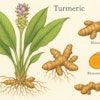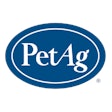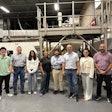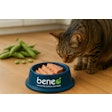AnimalBiome recently announced the publication of a new study led by Chief Science Officer Dr. Holly Ganz entitled “The Kitty Microbiome Project: Defining the Healthy Fecal ‘Core Microbiome’ in Pet Domestic Cats.”
The results of the study report on a healthy fecal microbiome dataset for domestic cats and an analysis of how different environmental influences impact the gut health of cats. The Kitty Microbiome Project began as a citizen science project on Kickstarter in 2015. Participants submitted over 1,800 fecal samples from their pet cats. AnimalBiome’s scientific research team analyzed fecal bacterial communities (termed ‘microbiome’) of pet domestic cats to understand the range of gut microbiome variation found in healthy cats in North America. The study also investigated whether differences in these communities were significantly associated with the age, diet or the living environment of individual cats.
Study Results
More than 300 different kinds of bacteria were identified in the fecal microbiome of pet cats; from these, 30 different bacterial groups were found in most healthy cats that represent the core healthy microbiome. It is valuable to identify which groups of beneficial bacteria occur in the core microbiome in order to monitor for effects of the environment, diet, disease, and medications. The study also found that bacterial composition depended on the diet of the cat, its age and whether the cat lived in a private home or a shelter. By establishing the expected range of microbiome composition within a healthy population of cats, this study provides valuable insights for veterinarians, pet owners and pet-related industries.
● Diet: Cats fed kibble had a slightly but significantly greater amount of beneficial core bacteria compared to cats not fed any kibble. Cats fed raw food had fewer groups of beneficial core bacteria compared to cats fed diets that included kibble.
● Age: The number of beneficial core bacteria decreased significantly with age in healthy cats.
● Environment: Where a cat lives has an impact on fecal microbiome composition. Beneficial core bacteria were better represented in cats living in homes compared to those in shelters. The full research article is published in Veterinary Sciences, Volume 9, Issue 11.


















